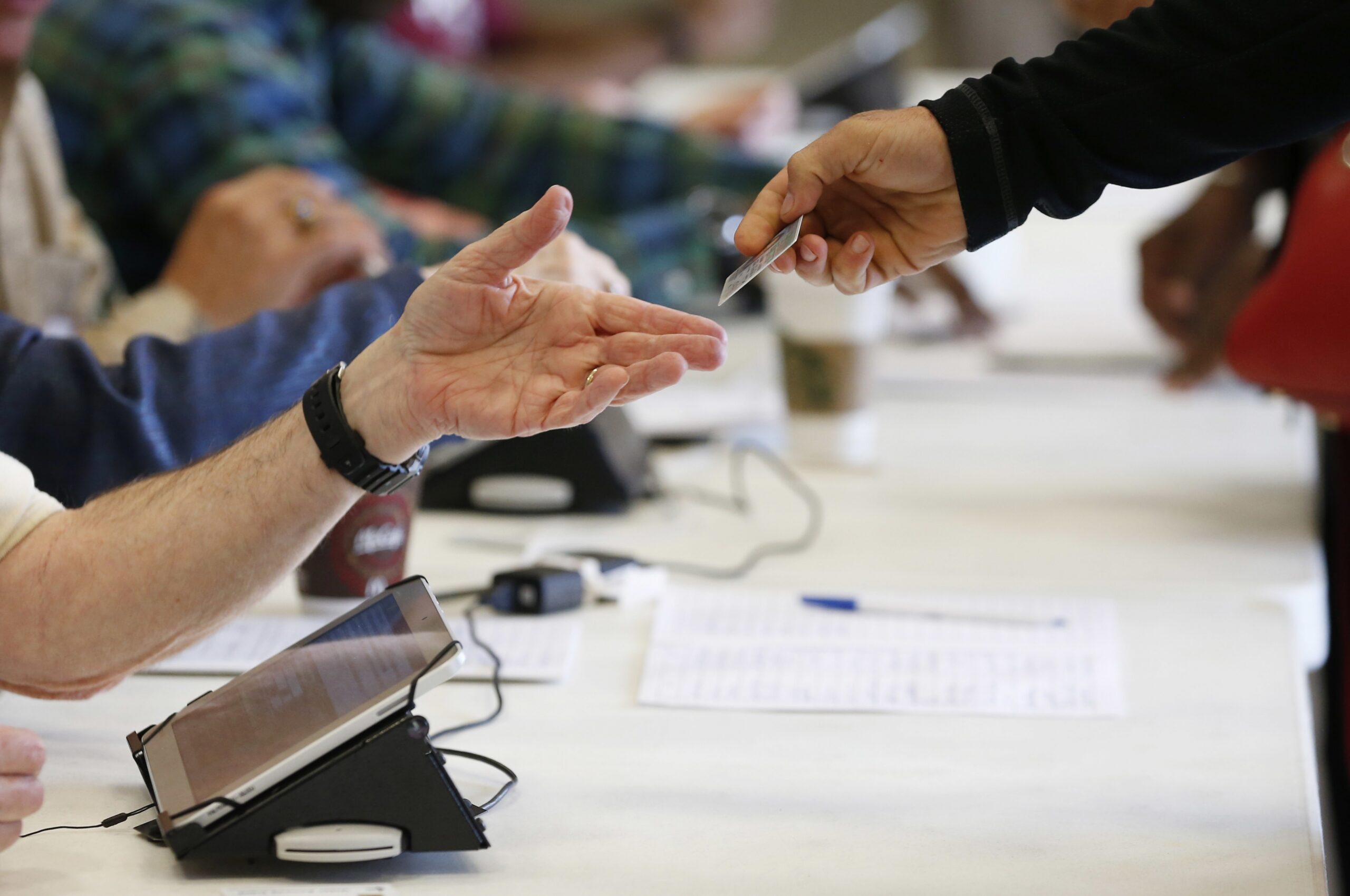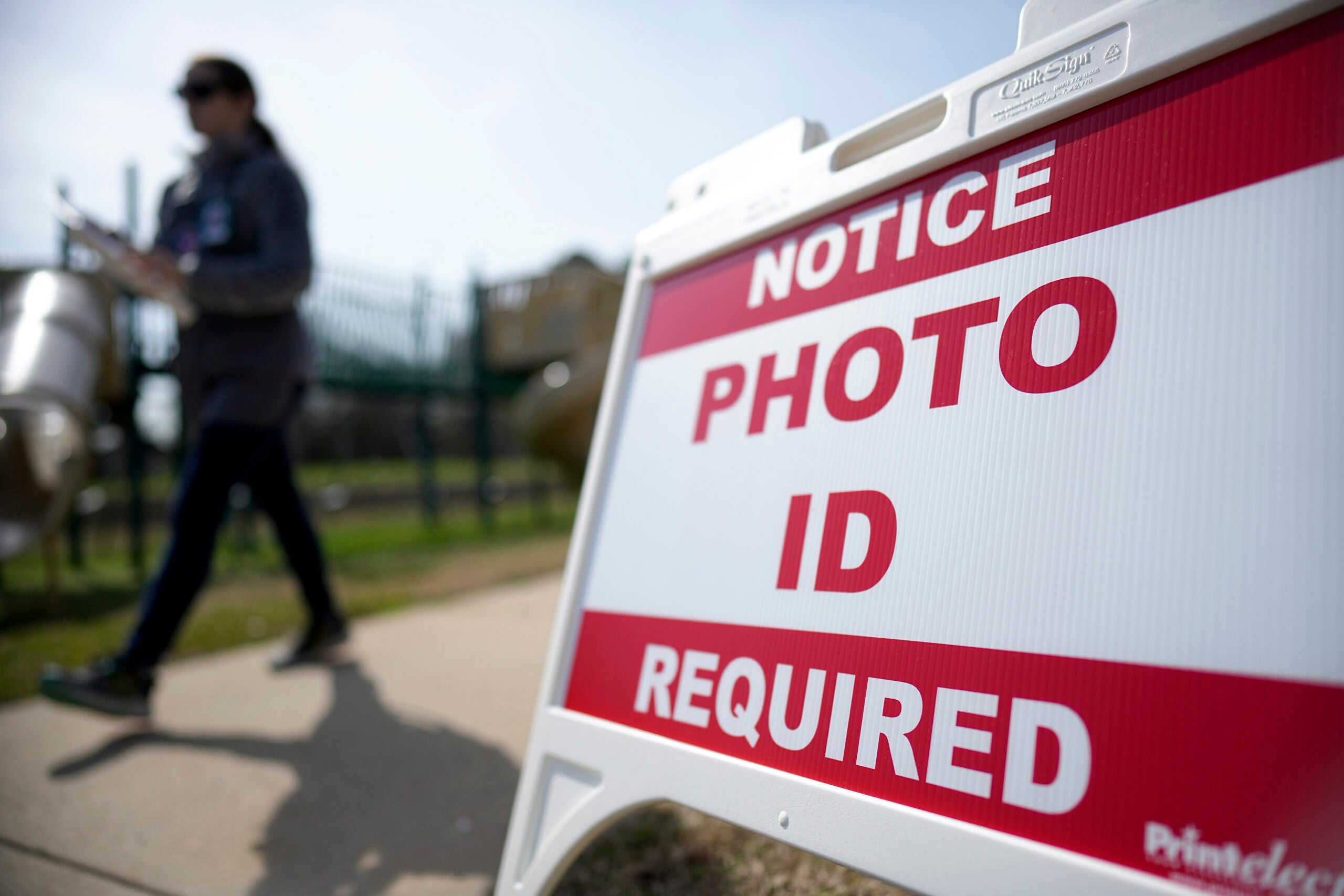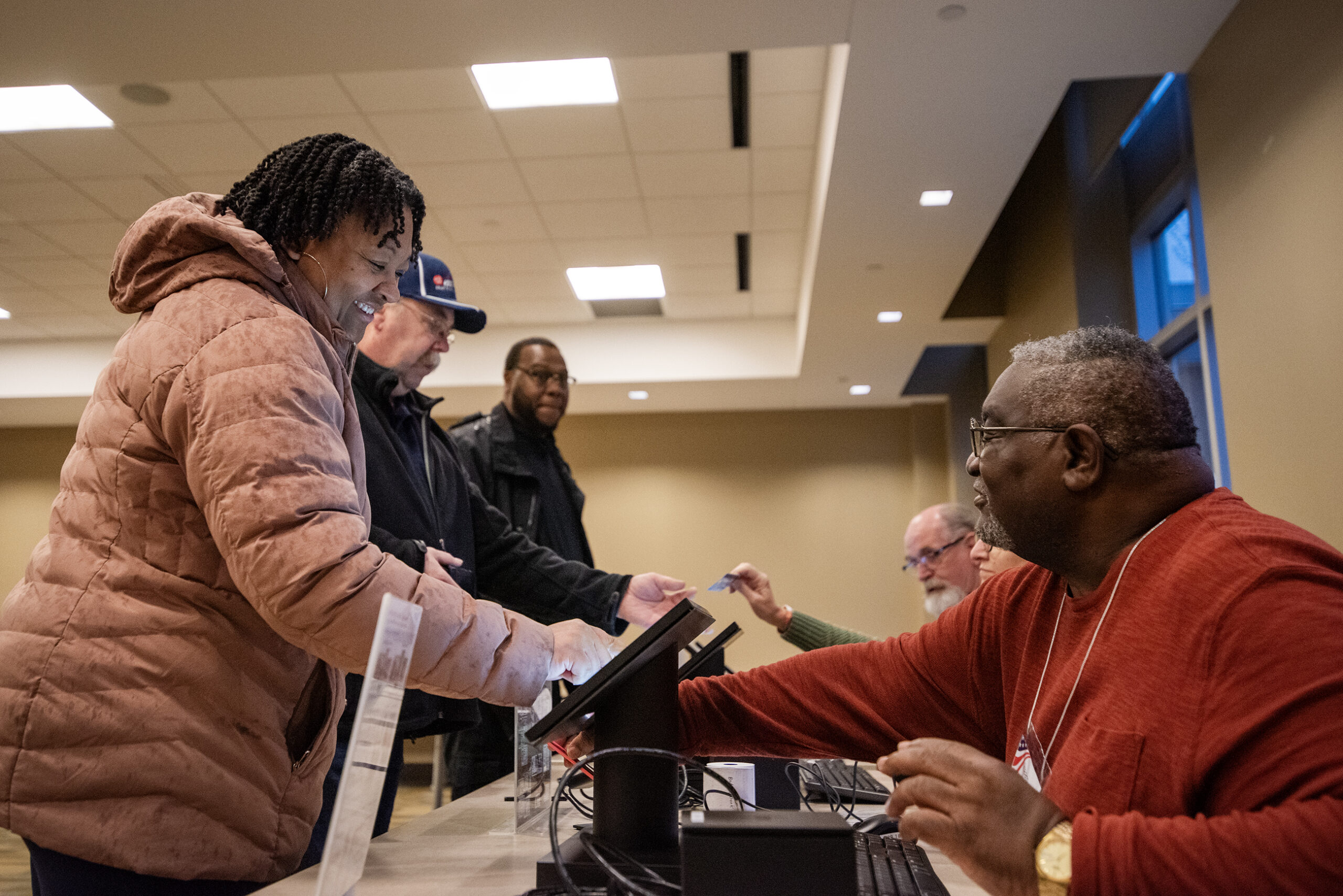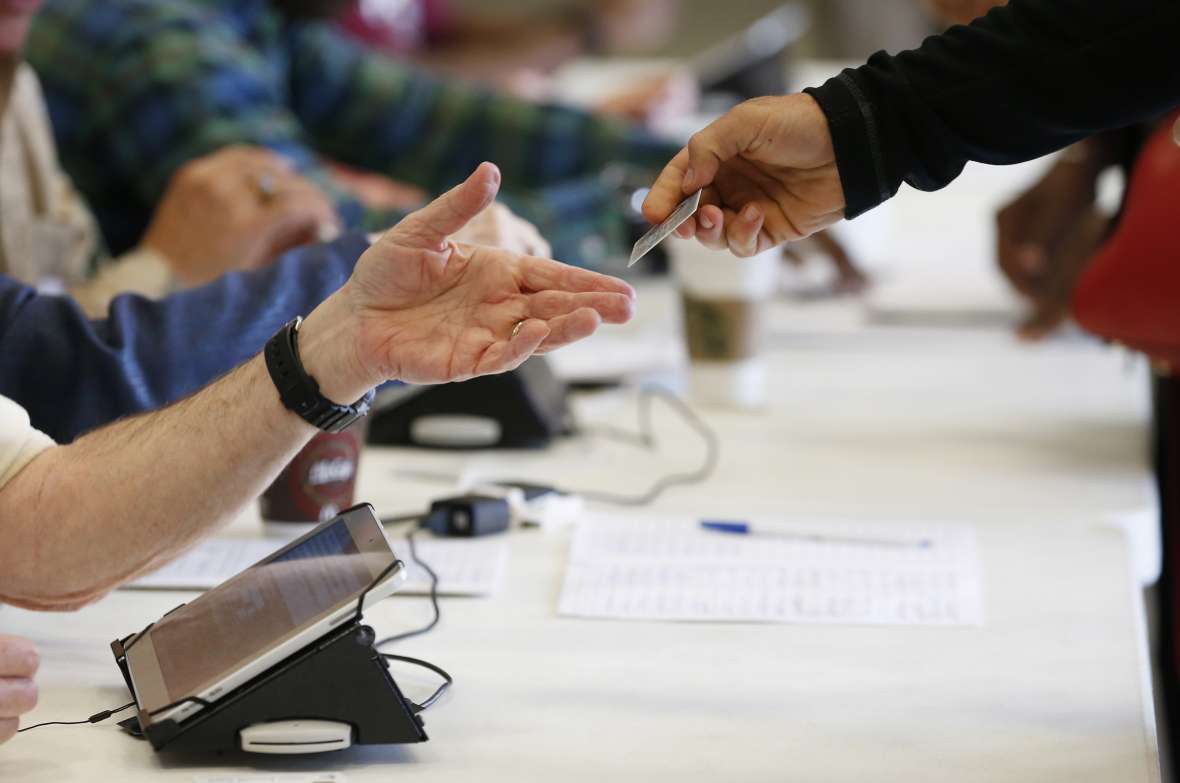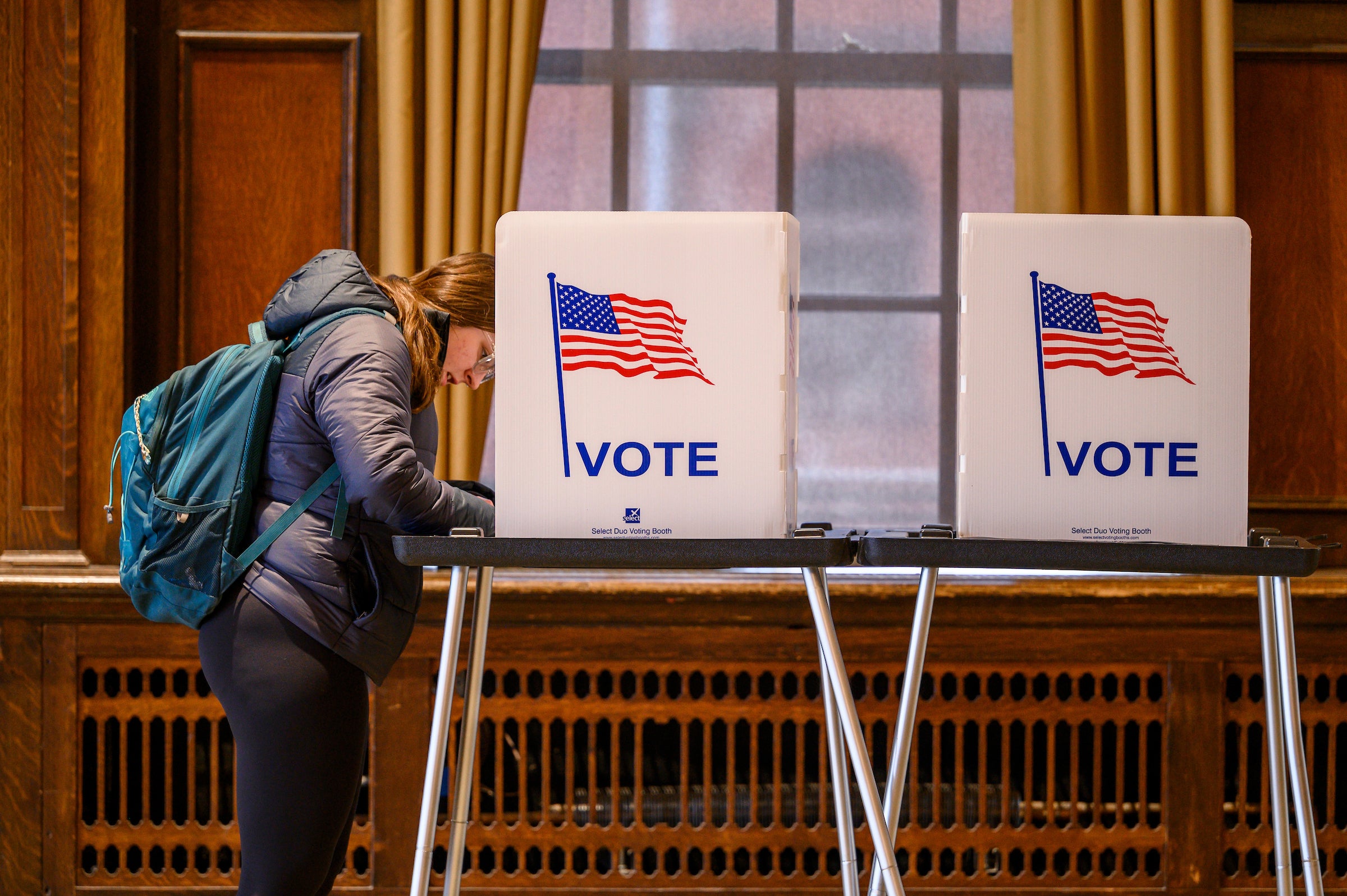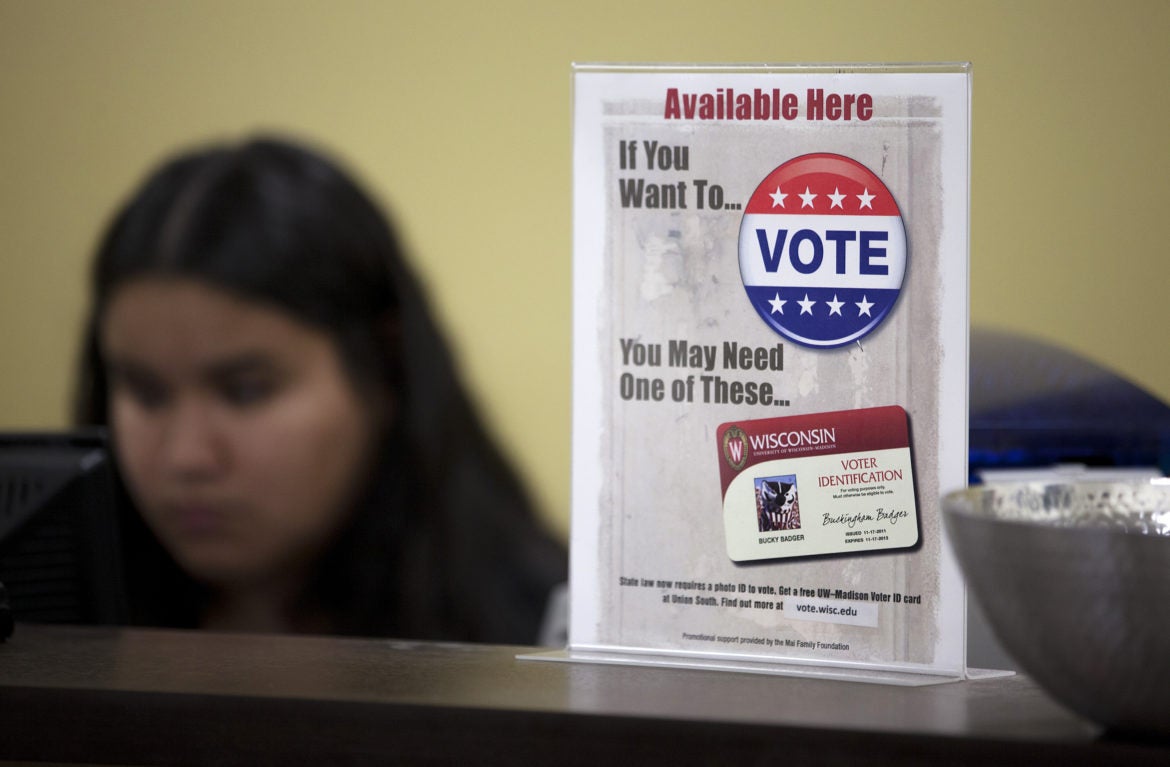A federal trial on Wisconsin’s voter ID law kicked off in Madison on Monday with arguments on whether or not the law targets certain voters.
The case was filed last year by One Wisconsin Institute, a liberal organization, alleging the state’s voter ID requirement, along with more than a dozen other election-related laws passed since 2011, make it more difficult for young people, minorities and people who tend to vote for Democratic candidates to get to the polls.
Lawyers for the plaintiffs called the laws “an embarrassment” and “a stain on the history of the state.”
Stay informed on the latest news
Sign up for WPR’s email newsletter.
The also called their first witnesses on Monday, including Todd Allbaugh, a former aide to Republican state Sen. Dale Schultz. Allbaugh testified about a private meeting between Republican lawmakers on voter ID in 2011.
“They were talking about impeding rights and they were happy about it,” he said.
According to Allbaugh, a small group of senators, including then-state Sen. Glenn Grothman (now a U.S. congressman), as well as state Sen. Leah Vukmir, R-Brookfield, Sen. Mary Lazich, R-New Berlin, and former Sen. Randy Hopper, R-Fond du Lac, were particularly pleased with the proposed legislation.
The senators were “giddy” and “politically frothing at the mouth,” Allbaugh said.
One Wisconsin Institute also called witnesses to share their challenges obtaining state-issued ID cards.
Nannette Mayze of Milwaukee testified about a failed, five-year process to get an ID for her 74-year-old father, Johnny Randle.
The name on Randle’s Mississippi birth certificate doesn’t match the name that he uses for other documents, including his Social Security card, causing the prolonged challenge.
State lawyers pointed to high turnout in April’s presidential primary as proof the voter ID law doesn’t keep people from the polls.
“Proof should be based on facts, not speculation” said Assistant Attorney General Clay Kawski.
In their arguments, state lawyers pointed to in-person absentee voting as a means of easing access to the polls, as well as a new rule approved by Gov. Scott Walker last week that offers an ID substitute to individuals working to get the documents needed for an ID.
Kawski called One Wisconsin Institute’s case a “scattershot” approach, because of its breadth.
Wisconsin’s voter ID law has already been upheld in other state and federal courts. This trial is expected to last up to nine days.
Proponents for the voter ID law argue it prevents fraud.
Wisconsin Public Radio, © Copyright 2025, Board of Regents of the University of Wisconsin System and Wisconsin Educational Communications Board.
